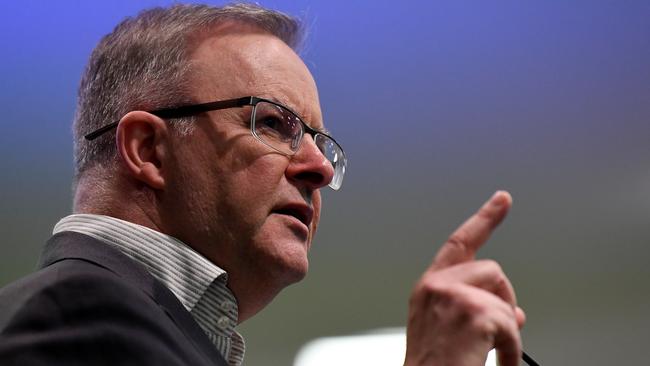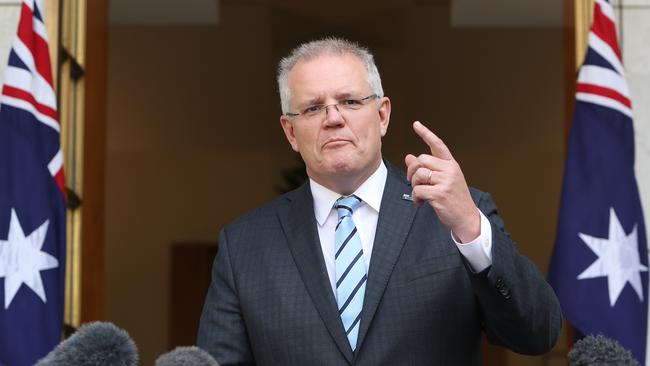Peta Credlin: Morrison’s success hangs on what comes next
Now that Scott Morrison is the undisputed top-dog of Australian politics, he needs to demonstrate that he’s more than just a campaign marketing machine, writes Peta Credlin.
Rendezview
Don't miss out on the headlines from Rendezview. Followed categories will be added to My News.
Almost no public life ends well.
The last prime minister to retire at a time of his own choosing, honour intact and mission as-entirely-accomplished as anything ever can be, was Sir Robert Menzies more than a half a century ago. The two most successful PMs of recent times, John Howard and Bob Hawke, were both felled; one by the electorate, the other by his party. Let’s hope that Scott Morrison is enough of a student of history to draw the right lesson: that defeat, one day, is almost inevitable; therefore what matters is to make the most of your time at the top.
Morrison already has one supreme achievement to his credit. He won the election almost no one thought he could.
It was bad enough that his predecessor had lost 38 consecutive Newspolls (and 14 seats at the 2016 election). But when Malcolm Turnbull was finally rolled, things got even worse as Turnbull and his acolytes vented their spleen on the Liberal Party. This time last year, the government had just lost one of its safest seats in the aftermath of the Turnbull overthrow, the then Member for Chisholm Julia Banks threw a hissy fit and quit the Liberals to sit as a destructive independent and a Labor-Greens-independent alliance seized control of the parliament to pass the so-called Medevac bill. Yet as parliament closes this year, not only has the government been decisively re-elected, but even the Medevac bill has been repealed, deal or no deal.

The ability to win an election is the one non-negotiable prerequisite for a successful political leader in a democracy. In demonstrating this, Morrison has not only secured his own place in the Liberal pantheon but rescued both his predecessors from the ignominy of leading a government that turned out to be an embarrassing failure: elected in a landslide in 2013, only to be turfed-out after two terms of self-inflicted wounds. Every day since becoming PM, Morrison has shown the energy, political smarts, and tribal commitment to the Liberal Party that his immediate predecessor so singularly lacked.
But as Bill Shorten showed in 2016, it might be easier to do well in an election when no one expects you to. Now that Morrison is the undisputed top-dog of contemporary Australian politics, he needs to demonstrate that he’s more than just a campaign marketing machine in order to become one of our great prime ministers.
Political parties exist to win elections. Governments exist to manage effectively the business of the nation and this is where Morrison is now putting his efforts. Backed by a determined PM, he was a very effective border protection minister. But as social services minister and as treasurer, he seemed more interested in political management than in long-term change for the better. Now as leader though, the signs are encouraging.

Almost immediately after the election, the government secured the passage of its tax legislation. The budget is almost certainly now back into surplus. This week’s shake-up of the bureaucracy shows a prime minister determined to ensure that ministers run the public service, not the other way round and by putting departments like agriculture, water and the environment together shows, I hope, he really means business when it comes to reform AND action.
With all this, plus the end of Medevac, losing the battle to tame thuggish unions, was a disappointment rather than a disaster. Still, the big question remains: other than modest tax cuts, prudent management and keeping Labor out of office (admirable objectives, all of them) what is the agenda of the Morrison government? It should not be an ideological one, if the Liberals are to stay in government. But it does have to be a practical, problem-solving one – especially if Anthony Albanese dumps the big target strategy pursued by his predecessor.
Energy is still a big issue. Running our power system to reduce emissions rather than to produce affordable, reliable 24/7 power is hurting low to middle income Australia, driving small business to the wall and reintroducing third world unreliability to our grid in big cities like Melbourne and Adelaide. It’s killing jobs too as heavy manufacturing in particular heads offshore despite the fiddles and taxpayer bailouts that have papered over the cracks til now.

Then there’s water. The government can try to help farmers get by with social security type support but the only way to make up for lack of reliable rain in the longer term and keep a viable agriculture sector in this country is to manage water better; and that means more dams, and dealing with the mounting issues of the Murray Darling Basin Plan that’s hurting our export earners and killing our towns. Stagnant wages and unaffordable housing are a problem everywhere but our big cities are close to becoming gridlocked and this is only going to worsen in the absence of sharp medium terms cuts to immigration, at least until infrastructure catches up.
Then there’s the institutional power of the unions, quite apart from the habitual law-breakers of the CFMEU. Yet the government is still officially committed to raising the compulsory superannuation levy to 12 per cent, mostly for the benefit of the union-controlled industry funds, when workers would much prefer that money as a pay-rise now.
So far, Morrison has succeeded because he’s been underestimated but no one underestimates him now. The risk, if he hoards political capital rather than puts it to good policy use, is that he will ultimately be judged as a very canny politician who talked a good game but who, as a PM, didn’t get much done.
Provided he can kickstart some of his ministers into gear in 2020, he’s got every chance of real success.

